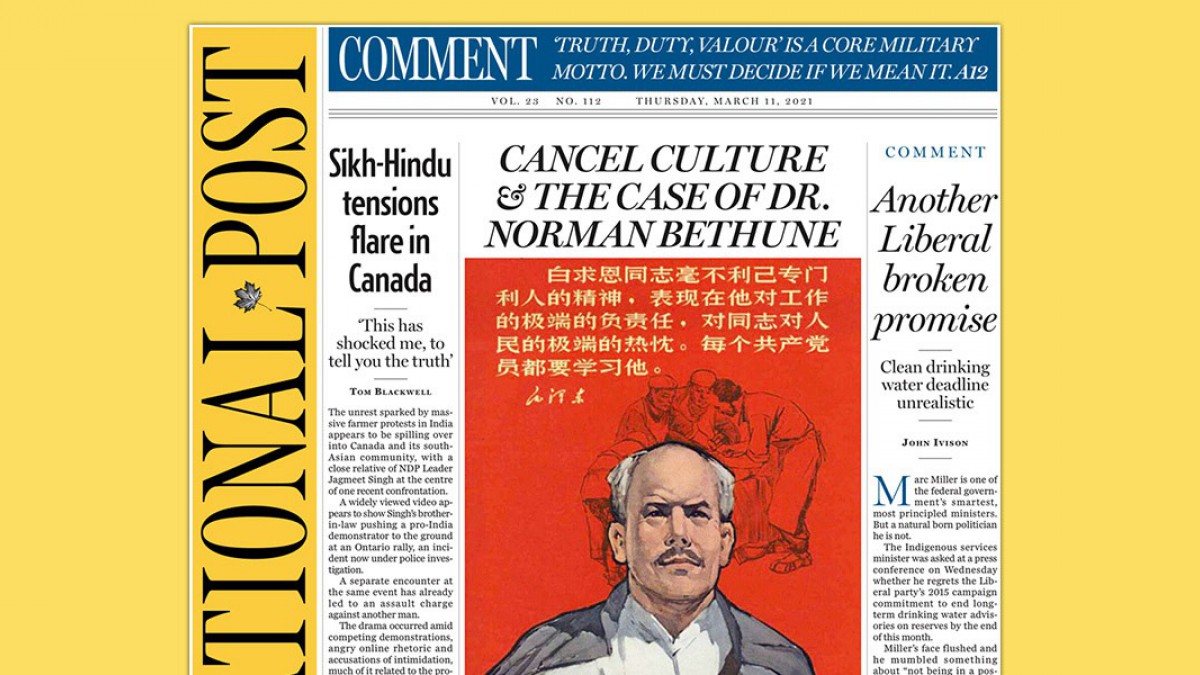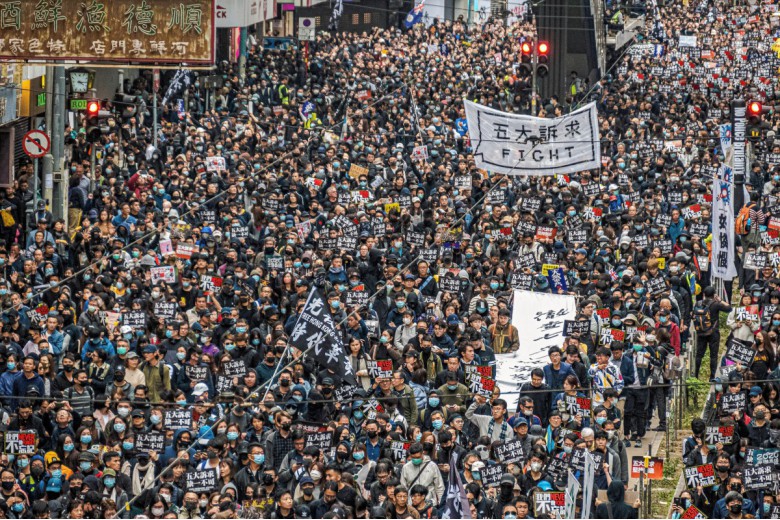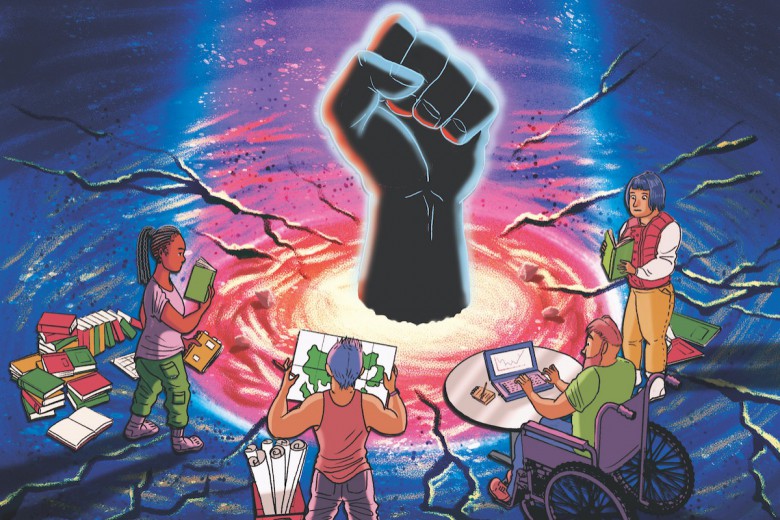The first time I heard Dr. Norman Bethune’s name was in China, almost 10 years ago. At a dinner in the city of Hohhot, Inner Mongolia, friends of my godfather’s raised a toast to the surgeon, after learning that I was born in Canada. Bethune was the first person to come to mind for them – a Canadian who gave up his life to help the Chinese people in their struggle against imperialist expansion.
Last week the National Post published a comment piece on its front page titled “Cancel culture and the case of Maoist 'martyr' Dr. Norman Bethune” by Kelly McParland. It follows a similar article published six months ago in the Globe and Mail called “If we’re cancelling historical villains, why not Norman Bethune?” (and a weird little piece from 2012 in the Toronto Sun, “End the Norman Bethune buffoonery”). In McParland’s piece, he argues that it’s unfair to “cancel” figures like John A. Macdonald for simply establishing a white supremacist settler colony, and that we should instead scrutinize people like Bethune, who fought for the frightening, monolithic entity known as Communist China.
He bucked the “norms” of his own nation in order to stand with the oppressed – while most white Canadians held attitudes similar to Macdonald’s about the Chinese, Norman Bethune was willing to sacrifice his life for the Chinese people.
Why are we seeing a front-page newspaper article with a big red Communist poster and a stale argument about the “vilification” of John A. Macdonald? It’s part of a resurgent red scare in Canada; a transparent attempt to bank off of current anti-China sentiment and the anxiety that western liberal democracy will cease to be the world’s dominant political ideology. It is simultaneously, and relatedly, an attempt to rehabilitate the image of Canada the Good amid growing awareness and condemnation of ongoing violence perpetrated against Indigenous people by the Canadian state.
Judging the past
So, how do we compare Bethune with the first prime minister of Canada?
Macdonald was, as historian Sean Carleton argued in the Toronto Star, the real architect of residential schools, created to rip Indigenous children out of their communities for the purpose of “acquir[ing] the habits and modes of thought of white men.” He was a founder of the paramilitary force that would later become the Royal Canadian Mounted Police. The force confined members of First Nations to reserves, clearing the land for settlement by white settlers; when the RCMP uses violence in service of extractive industries, as it did in Wet’suwet’en territory in February 2020, it is fulfilling its mandate. This is Macdonald’s legacy, and why his statues keep getting torn down.

McParland argues that Macdonald simply “lived in a time when accepted norms differed from ours,” and that we are mistaken to criticize historical figures based on modern values. But Macdonald was not simply a passive administrator of the norms of his time. He was an active and leading participant in the founding of a colonial nation, someone who shaped and created those norms and then buttressed them with political and military power. If McParland professes to be a serious student of Canadian history, surely he can afford Canada’s founding father this agency.
We might also ask: whose values are we talking about here? Even in the 1800s, there was popular resistance among Indigenous Peoples toward Macdonald and the Canadian state more broadly. Métis leader Louis Riel was charged by Macdonald with high treason after he led a five-month insurgency against Macdonald’s government, sparked by land theft and neglect for treaties. Why do we discuss only the past values of the colonizers, and not the past values of people who bore the brunt of colonialism?
Why Bethune matters today
Bethune was not simply a “Maoist ‘martyr’” who was “duped by Marxist visions of a perfect world,” as McParland puts it. He served the Communist Party of China (CPC) during the Second Sino-Japanese War, when the Japanese Imperial Army invaded and occupied large parts of China from 1937 to 1945. Military expansion and annexation had long been part of the Japanese Empire’s strategy to access natural resources lacking in Japan itself. In order to defend against the better-equipped Japanese Imperial Army, the ruling Nationalist government of China and the CPC temporarily halted their civil war, and joined forces.
It was a period notable for its atrocities. When the Japanese army seized Nanjing, the Nationalist government capital, in 1937, Japanese soldiers systematically massacred and raped tens of thousands of civilians. Japanese war planes bombed the city of Chongqing in a terror campaign which lasted for five years, again killing thousands of civilians. The infamous Unit 731 of the Imperial Army conducted horrific medical experiments on living prisoners, including tests to see how quickly diseases would spread between infected and healthy prisoners locked up together. An estimated 200,000 people were killed by Japanese biological weapon experiments and germ warfare. Chinese soldiers, when not engaged in combat, had to contend with dysentery, measles, smallpox, and pneumonia. Altogether, an estimated 14 million Chinese people died during this war.
"Let us say to the people not ‘How much have you got?’ but ‘How best can we serve you?’”
Norman Bethune died from infection at the age of 49, performing operations with limited equipment during one of the most brutal and influential wars in history. He did not die for Mao Tse-Tung, but for the people of China, who had been trampled by imperial forces for more than a century leading up to that point. We should be thankful that Imperial Japan lost this war, and that foreign soldiers and doctors supported China in this struggle, regardless of our opinions on the eventual path of the People’s Republic of China, formed in 1949, a full 10 years after Bethune’s death.
Bethune wanted to make health care accessible to all people, and in particular the oppressed people of this world. As he once said, “Medicine, as we are practising it, is a luxury trade. We are selling bread at the price of jewels. … Let us take the profit, the private economic profit, out of medicine and purify our profession of rapacious individualism. … Let us say to the people not ‘How much have you got?’ but ‘How best can we serve you?’”
In Canada, he advocated for universal health care and developed surgical tools, such as the Bethune Rib Shears, which are still used by surgeons today. In Spain, he served as a volunteer medical provider in the struggle against Francoist fascism, and eventually developed a system of mobile blood transfusion based on his experiences there.
It’s part of a resurgent red scare in Canada; a transparent attempt to bank off of current anti-China sentiment and the anxiety that western liberal democracy will cease to be the world’s dominant political ideology.
Norman Bethune was willing to step onto the battlefield for people he barely knew. He bucked the “norms” of his own nation in order to stand with the oppressed – while most white Canadians held attitudes similar to Macdonald’s about the Chinese, Norman Bethune was willing to sacrifice his life for the Chinese people.
An oft-repeated claim by some Canadians is that they are “against the Chinese government, not the Chinese people.” If Canadians are to support the Chinese people, then Bethune’s legacy should be celebrated in his home country.
It is disappointing, but not surprising, to see the editors of Canada’s biggest media outlets running pieces like McParland’s. They have chosen uncritical nationalism at a moment when Canada-China relations are at a low point, and Canadian distrust of China extends beyond criticism of the CPC, to Chinese people in general. They have chosen to dismiss legitimate critiques of colonialism as “cancel culture,” at a moment when Indigenous people are being brutalized by white supremacist mobs and police officers. Perhaps the editors should look to the example of Bethune, a person who was able to transcend the racist and chauvinistic attitudes of his time, nearly a century ago.







